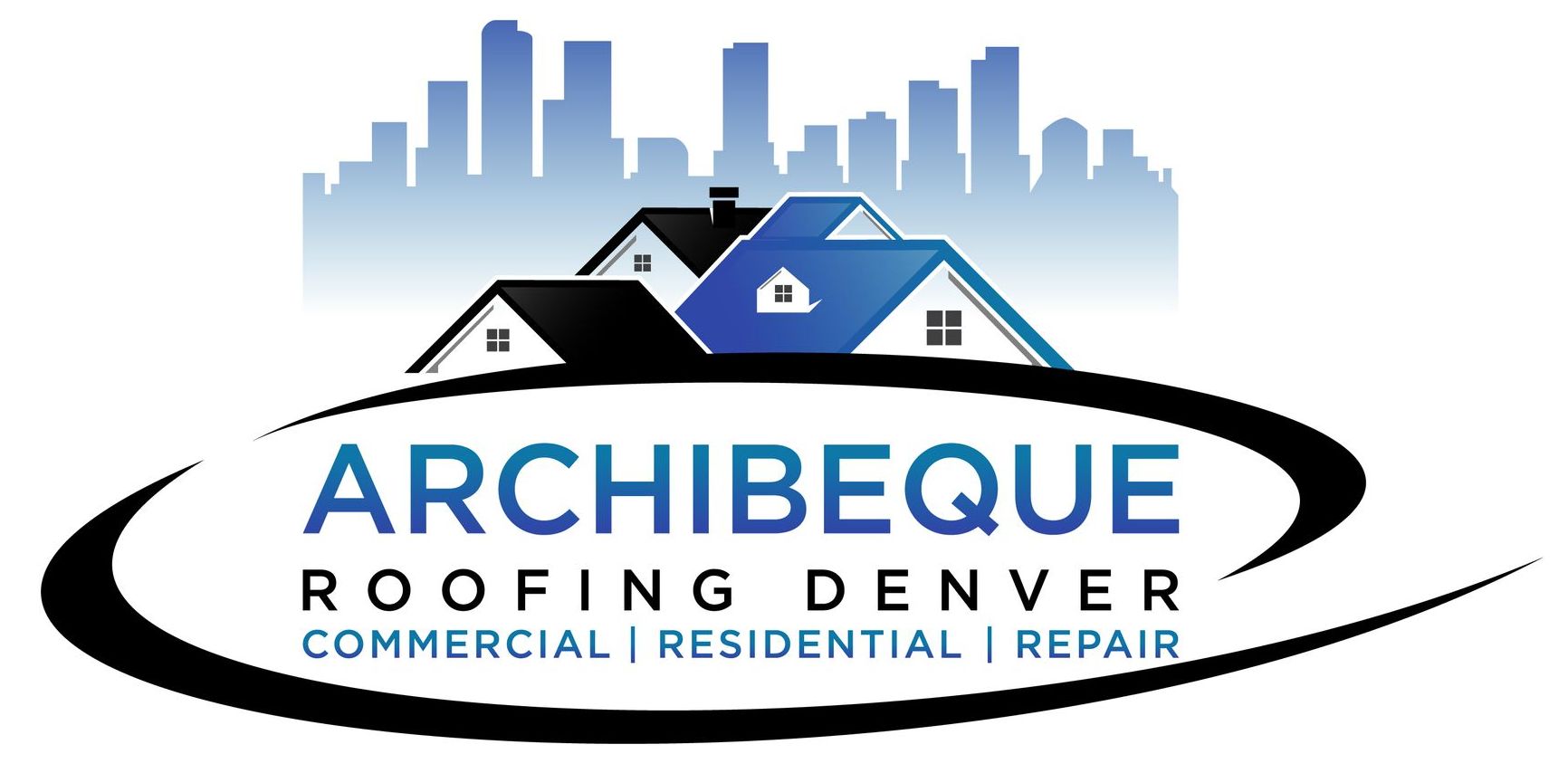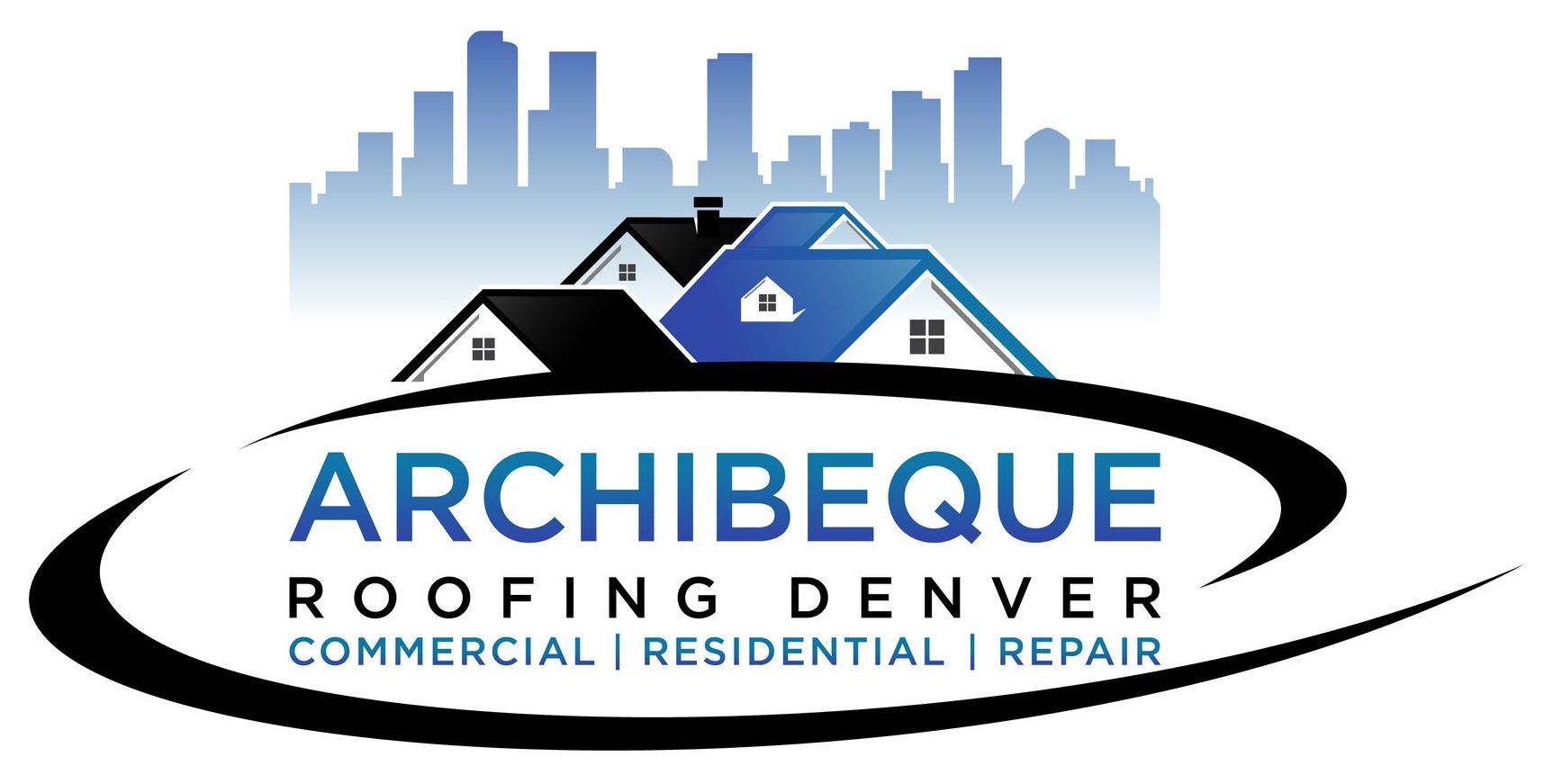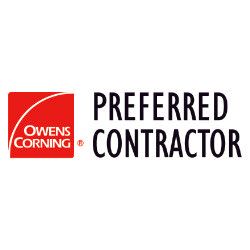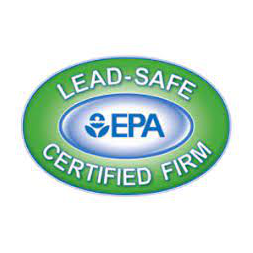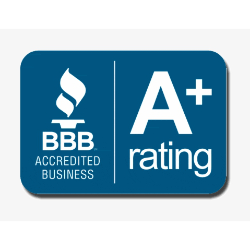Denver Residential Roofing Shingles, Types of Shingles, 50 Year Shingles, Denver Roofers
Repair or replace, archetechural, composition, ASPHALT ROOFING Shingles, color, cost in denver, co
rOOFING Shingles in Denver, co
When it comes to protecting your Denver home from the elements, one of the most important decisions you'll make is choosing the right roofing material. Composition roofing shingles have become a popular choice for homeowners in Denver, CO, due to their durability, versatility, and aesthetic appeal. In this article, I will guide you through the process of selecting the perfect composition roofing shingles for your Denver home.
COMPOSITION ROOFING SHINGLE MATERIALS
Composition roofing shingles are available in a variety of materials, each with its own set of advantages and disadvantages. The most common material used for composition roofing shingles is asphalt. Asphalt shingles are affordable, easy to install, and can withstand harsh Denver, CO weather conditions. Another popular option is fiberglass shingles, which are lightweight, fire-resistant, and offer excellent durability. Additionally, there are composite shingles made from a mixture of different materials, such as rubber and plastic, which provide enhanced resistance to impact and extreme Denver, CO temperatures.
Composition roofing shingles have become a popular choice for homeowners in Denver, CO, due to their durability, versatility, and aesthetic appeal. In this article, I will guide you through the process of selecting the perfect composition roofing shingles for your Denver home.
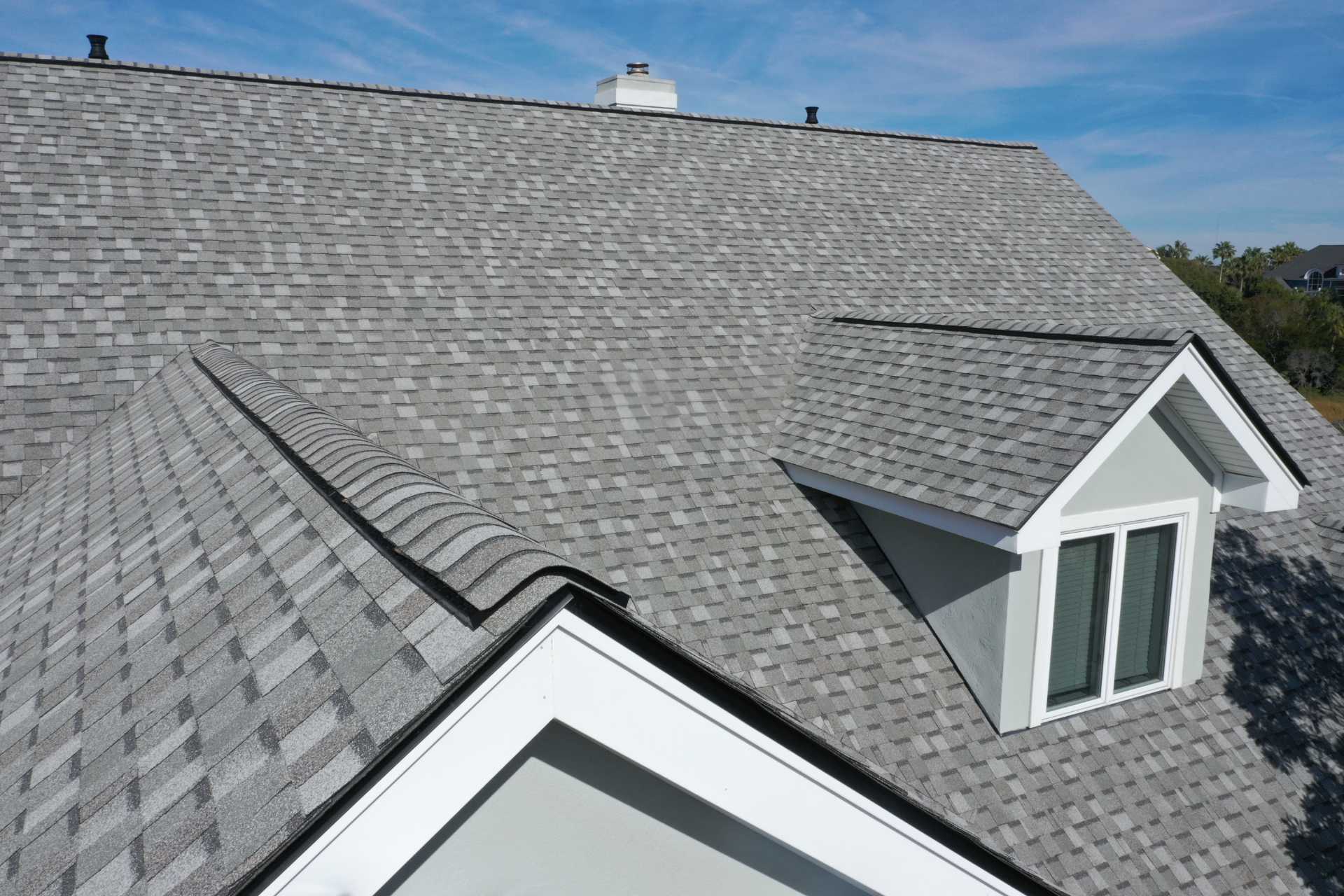
HOW TO CHOOSE THE RIGHT COLOR OF COMPOSITION ROOFING SHINGLES FOR YOUR DENVER HOME
The color of your composition roofing shingles can greatly impact the overall appearance of your home. When selecting a color, consider the architectural style of your house, the surrounding landscape, and the neighborhood aesthetics. Light-colored shingles can help reflect heat and keep your home cooler, making them ideal for warmer climates. Dark-colored shingles, on the other hand, can absorb heat and help melt snow faster, making them a good choice for colder Denver, CO climates. Make sure to choose a color that complements your Denver home's exterior windows, paint & trim to enhance its curb appeal.
COMPOSITION ROOFING SHINGLES ARE EXCELLENT FOR THE DENVER, CO CLIMATE
Living in Denver, CO means dealing with a wide range of weather conditions, including hot summers, cold snowy winters, and frequent Denver hailstorms. When choosing composition roofing shingles for your Denver, CO home, it's important to select materials that can withstand these weather extremes. The best choice for Denver is composition shingles that are specifically designed to be impact-resistant and have a high wind rating. It's a good idea to consider shingles with algae and mold resistance to prevent unsightly growth in the damp climate. By selecting composition shingles designed for the Denver climate, with composition shingles will give you the peace of mind that your Denver roof will withstand the test of time and Denver's harsh weather.
THE COST OF COMPOSITION ROOFING SHINGLES IN DENVER, CO
The cost of composition roofing shingles in Denver can vary depending on several factors, including the material, quality, and brand. Asphalt shingles are generally the most affordable option, with prices ranging from $70 to $120 per square foot. Fiberglass shingles are slightly more expensive, costing between $120 and $200 per square foot. Composite shingles tend to be the priciest, with costs ranging from $200 to $400 per square foot. It's important to remember that while composition roofing shingles may have a higher upfront cost compared to other roofing materials, their longevity and durability make them a cost-effective investment in the long run especially with Denver's unpredictable weather.
TIPS FOR SELECTING THE PERFECT COMPOSITION ROOFING SHINGLES FOR YOUR DENVER, CO HOME
Consult with a professional roofer: Seek advice from a roofing contractor who specializes in composition shingles. Archibeque Roofing can provide valuable insights and help you make an informed decision.
- Consider your home's architectural style: Choose shingles that complement the design and style of your home. Whether it's a modern, traditional, or rustic aesthetic, there's a composition shingle that will enhance its beauty.
- Research local building codes: Familiarize yourself with the building codes and regulations in Denver, CO, to ensure that the shingles you choose comply with the necessary standards.
- Prioritize durability and longevity: Look for shingles with a long lifespan and excellent warranties. Investing in high-quality materials will save you money on repairs and replacements down the line.
- Compare different shingle brands and styles: Take the time to compare different brands and styles of composition roofing shingles. Consider factors such as color options, warranties, and customer reviews to find the best fit for your Denver, CO home.
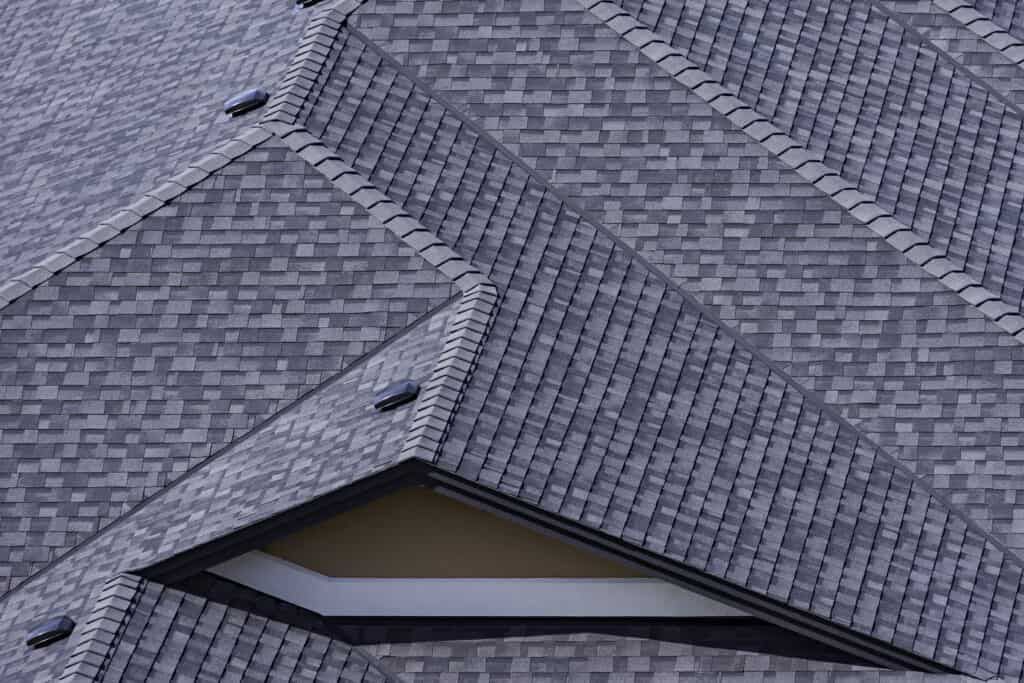
Architectural Shingles, Perfect For Denver's Harsh Weather
Architectural composition shingles, often referred to simply as architectural shingles or shingles architecture, are highly favored for roofing due to their visual appeal and distinctive looks. These decorative shingles, crafted from a fusion of asphalt and composite materials, endowing them with enhanced strength and longevity, including class 4 impact resistant shingles. Celebrated for their three-dimensional design, architectural shingles add depth and texture to the roof, thus significantly boosting the curb appeal of any property. Their impact resistant roof shingles nature makes them unique, offering protection against harsh weather conditions.
Can You Shingle Over an Architectural Shingles?
Architectural shingles are one of the common types of shingles roof used. They can also withstand the hardest storm, making them an ideal choice for an impact resistant roof. In fact, many people wonder, "can you shingle over architectural shingles?" The answer is yes. You can install new architectural shingles over your existing ones, as long as the roof structure can support the additional weight.
What is an Architectural Shingle?
Another question people often ask is, "what is architectural shingles?" Well, architectural shingles, also known as architectural roof shingles, are a premium option for any Denver roofing project. They are designed to resemble traditional materials, such as wood shakes or slate, but with the added benefits of architectural shingles. These benefits include durability, longevity, and the ability to enhance the overall appearance of a Denver, CO home.. They are made with layering techniques to create a three-dimensional effect, making them stand out from other types of shingles.
Architectural Shingle Roof if Denver, CO
If you are considering installing architectural shingles, it's important to know the benefits of architectural shingles. Some of these benefits include their impact resistant nature, which can protect your roof from hail damage or falling branches. Moreover, architectural shingles offer excellent water resistance and are less prone to wind uplift compared to other types of shingles. They are also easier to install, with cutting architectural shingles to fit the roof being a straightforward process. All these advantages make architectural shingles a popular choice among homeowners
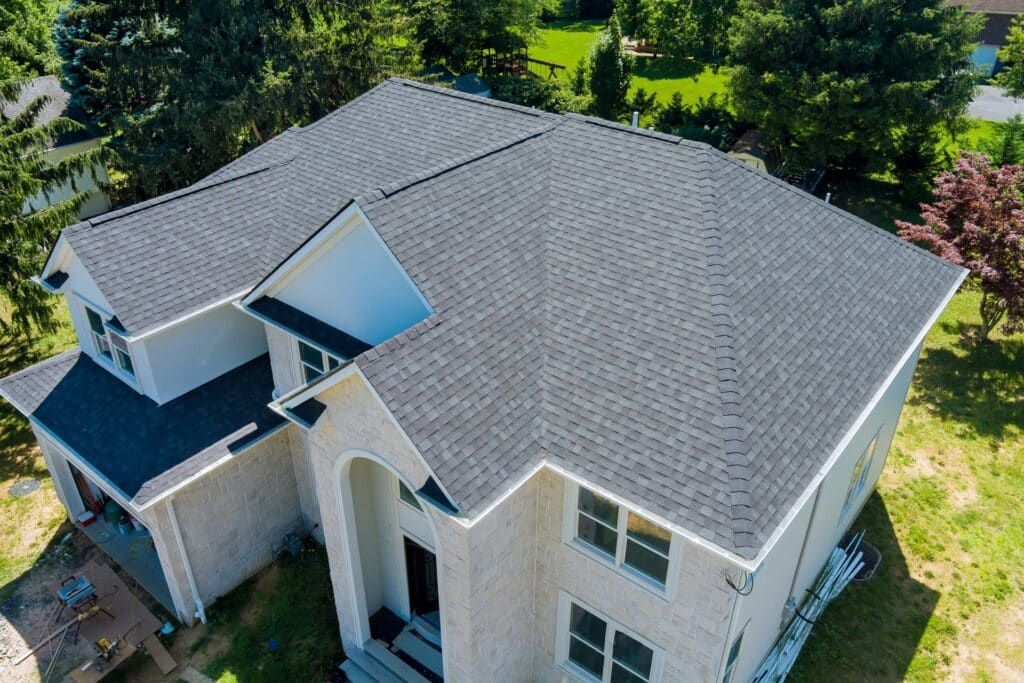
The Affordable low Cost Way to Replace and Repair Asphalt Roof Shingles in Denver, CO
There are several advantages to choosing asphalt roof shingles for your Denver home. Firstly, they are cost-effective compared to other roofing materials such as metal. Asphalt shingles are significantly cheaper to purchase and install, making them a budget-friendly option for homeowners. Additionally, asphalt shingles come in a wide variety of colors and styles, allowing you to customize the look of your roof to match your home's aesthetic.
Another advantage of asphalt shingles is their durability. They are designed to withstand harsh weather conditions, including strong winds and heavy rain. Most asphalt shingles have a class A fire rating, providing an added layer of safety for your home. Additionally, they require minimal maintenance, making them a hassle-free choice for homeowners.
Cost-effective solutions for replacing and repairing asphalt roof shingles in Denver
One cost-effective solution is to opt for asphalt shingle recycling. Instead of disposing of your old shingles, you can recycle them and use them as a base layer for the new shingles. This not only reduces waste but also saves you money on disposal fees. Additionally, recycling asphalt shingles is an environmentally friendly option, as it reduces the demand for new materials.
Another cost-effective solution is to consider DIY repairs or replacements. While it's always recommended to hire a professional for complex roofing projects, minor repairs or replacements can often be done by homeowners with basic DIY skills. There are numerous online tutorials and resources available that can guide you through the process step-by-step, saving you money on labor costs.
CHOOSING THE BEST ASPHALT ROOF SHINGLES AND UNDERLAYMENT
When it comes to choosing asphalt roof shingles for your Denver home, it's important to consider the quality and durability of the materials. Look for shingles that are made from high-quality asphalt and have a good warranty. Additionally, consider the climate in Denver and choose shingles that are specifically designed to withstand the local weather conditions.
In addition to the shingles, the underlayment is also an important component of your roofing system. The underlayment acts as a moisture barrier, protecting the roof deck from water damage. The best underlayment for asphalt shingles is typically a synthetic material, such as synthetic felt or rubberized asphalt. These materials offer superior protection against moisture and are more durable than traditional felt underlayment.
COMPARING THE COST OF ASPHALT SHINGLES VS METAL ROOF
When considering the cost of asphalt shingles versus a metal roof in Denver, it's important to take into account both the upfront cost and the long-term savings. While asphalt shingles are generally cheaper to install initially, a metal roof can provide significant savings over its lifespan.
Metal roofs are known for their durability and longevity. They can last up to 50 years or more, whereas asphalt shingles typically have a lifespan of 20 to 30 years. This means that while the initial cost of a metal roof may be higher, you won't have to worry about replacing it as frequently as you would with asphalt shingles.
Additionally, metal roofs are more energy-efficient than asphalt shingles. They reflect heat from the sun, reducing the amount of heat that is absorbed into your home and lowering your cooling costs. Over time, these energy savings can add up, making a metal roof a cost-effective choice in the long run.
DIFFERENT TYPES OF ASPHALT ROOF SHINGLES
There are several different types of asphalt roof shingles available on the market, each with its own unique characteristics and advantages. Understanding the different types can help you make an informed decision when it comes to replacing or repairing your roof.
- Three-tab shingles: Three-tab shingles are the most basic and economical option. They consist of a single layer of asphalt and are available in a variety of colors. While they are affordable, they have a shorter lifespan compared to other types of shingles.
- Architectural shingles: Architectural shingles, also known as dimensional or laminated shingles, are a step up from three-tab shingles in terms of durability and aesthetics. They have multiple layers of asphalt and give the appearance of a more expensive roofing material, such as wood or slate.
- Luxury shingles: Luxury shingles are the highest quality asphalt shingles available. They are thicker and more durable than other types of shingles, and often have unique designs and finishes. Luxury shingles can mimic the look of expensive roofing materials, such as cedar shakes or tile, at a fraction of the cost.
Lifespan of Asphalt Roof Shingles
The lifespan of asphalt roof shingles can vary depending on several factors, including the quality of the materials, the installation process, and the climate in which they are installed. On average, asphalt shingles have a lifespan of 20 to 30 years.
To ensure the longevity of your asphalt shingles, it's important to properly maintain your roof. Regular inspections and maintenance, such as cleaning gutters and removing debris, can help prevent damage and extend the lifespan of your shingles. Additionally, addressing any repairs or issues promptly can prevent further damage and prolong the life of your roof.
REPAIRING ASPHALT ROOF SHINGLES
Over time, asphalt roof shingles may become damaged or worn out due to exposure to the elements. Fortunately, repairing asphalt shingles is a relatively straightforward process that can be done by homeowners with some basic DIY skills.
One common issue with asphalt shingles is cracking or splitting. This can be caused by age, weather conditions, or improper installation. To repair a cracked or split shingle, start by lifting the shingle above it and applying roofing cement underneath. Press the cracked shingle down onto the cement and secure it in place with roofing nails. Finally, apply a layer of roofing cement over the nail heads to seal them and prevent water penetration.
ANOTHER COMMON ISSUE IS MISSING or DAMAGED SHINGLES
If you notice a missing shingle, it's important to replace it as soon as possible to prevent water damage. To replace a shingle, carefully lift the shingle above it and slide the new shingle into place. Secure the new shingle with roofing nails and apply roofing cement over the nail heads for added protection.
REPLACING ASPHALT ROOF SHINGLES
In some cases, repairing asphalt roof shingles may not be sufficient, and a full replacement may be necessary. If a large portion of your roof is damaged or has reached the end of its lifespan, it's best to consult with a professional roofing contractor for a full replacement. When replacing asphalt roof shingles, it's important to follow the proper installation techniques to ensure a long-lasting and watertight roof.
Start by removing the old shingles and inspecting the roof deck for any damage or rot. Replace any damaged sections of the roof deck before installing the new shingles.
Next, install a layer of underlayment to provide an additional barrier against moisture. Secure the underlayment with roofing nails, making sure to overlap the seams by at least 6 inches. Finally, begin installing the new shingles, starting at the bottom edge of the roof and working your way up. Secure each shingle with roofing nails and apply roofing cement over the nail heads for added protection.
ROOF COATING OPTIONS FOR ASPHALT SHINGLES
Roof coatings can be a cost-effective solution for extending the lifespan of your asphalt shingles and protecting them from the elements. Roof coatings are liquid-applied membranes that form a protective barrier over the shingles, sealing them against water, UV rays, and other damaging elements.
One popular option for roof coatings is elastomeric coatings. Elastomeric coatings are highly flexible and can expand and contract with the roof's movement. They provide excellent protection against water penetration and can help reduce energy costs by reflecting heat from the sun.
Another option is acrylic roof coatings. Acrylic coatings are water-based and provide a seamless, protective layer over the shingles. They are highly durable and resistant to UV rays, making them an ideal choice for Denver's sunny climate. Acrylic coatings can also be tinted to match the color of your shingles, enhancing the overall appearance of your roof.
INSTALLING A METAL ROOF OVER ASPHALT SHINGLES
If you're considering a metal roof but already have asphalt shingles in place, it is possible to install a metal roof over the existing shingles. This can be a cost-effective solution that saves both time and money, as it eliminates the need for a complete tear-off and disposal of the old shingles.
Before installing a metal roof over asphalt shingles, it's important to ensure that the existing roof is in good condition and properly ventilated. The metal roof should be installed directly over a layer of underlayment, which provides an additional moisture barrier. Metal roofing panels can then be installed on top of the underlayment, secured with screws or clips.Installing a metal roof over asphalt shingles offers several advantages. It provides added durability and longevity to your roof, as metal roofs can last up to 50 years or more. Additionally, metal roofs are energy-efficient, reflecting heat from the sun and reducing cooling costs.
HOW TO COMBINE A METAL ROOF WITH ASPHALT SHINGLES FOR COST-EFFECTIVENESS
If you're looking for a cost-effective roofing solution that combines the durability of a metal roof with the affordability of asphalt shingles, a hybrid roof system may be the answer. A hybrid roof system involves installing a metal roof on the main sections of the roof, such as the steep slopes, while using asphalt shingles on the lower-sloped or less visible areas.
By combining a metal roof with asphalt shingles, you can benefit from the long lifespan and energy efficiency of metal while reducing costs by using less expensive asphalt shingles on certain sections of the roof. This can be a particularly effective solution for homeowners on a budget who still want the benefits of a metal roof.
When it comes to replacing or repairing asphalt roof shingles in Denver, there are several cost-effective solutions available. From recycling old shingles to considering DIY repairs, homeowners can save money without compromising on the quality or durability of their roof. By choosing the right type of shingles, underlayment, and roof coating, and exploring options such as metal roofs or hybrid systems, Denver homeowners can find a cost-effective solution that meets their needs and budget.
How much does a shingle roof cost, In Denver?
A new asphalt shingles roof for a typical 2,000 to 2,200 square foot single-family house can range in price from $9,500 to $18,700 fully installed, including the tear off and disposal of the old roof (up to two layers)
How long does a shingle roof last?
You should realistically get around 80-85% of the life span out of the asphalt shingles. This means you can expect to get around 20 years out of your 3-tab shingle roof and around 25 years out of your architectural shingles. On the other hand, luxury shingles are thicker and should get up to around 30 years
What are the different types of asphalt shingles?
There are three major categories of asphalt roofing shingle products available today - strip shingles, dimensional shingles, and luxury shingles. It is important to understand the differences between each type of roofing shingle in order to pick the right product for your home.
Repair or Replace roof shingles?
Any type of damage confined to a small space can usually be repaired and patched up, so there's no need to invest in a new roof. But if the damage affects more than 30 percent of your roof, it is better to replace the whole roof.
Tell Us About Your Residential Asphalt sHINGLE Roofing Project
Get a completely obligation-free consultation with one of our professionals today
